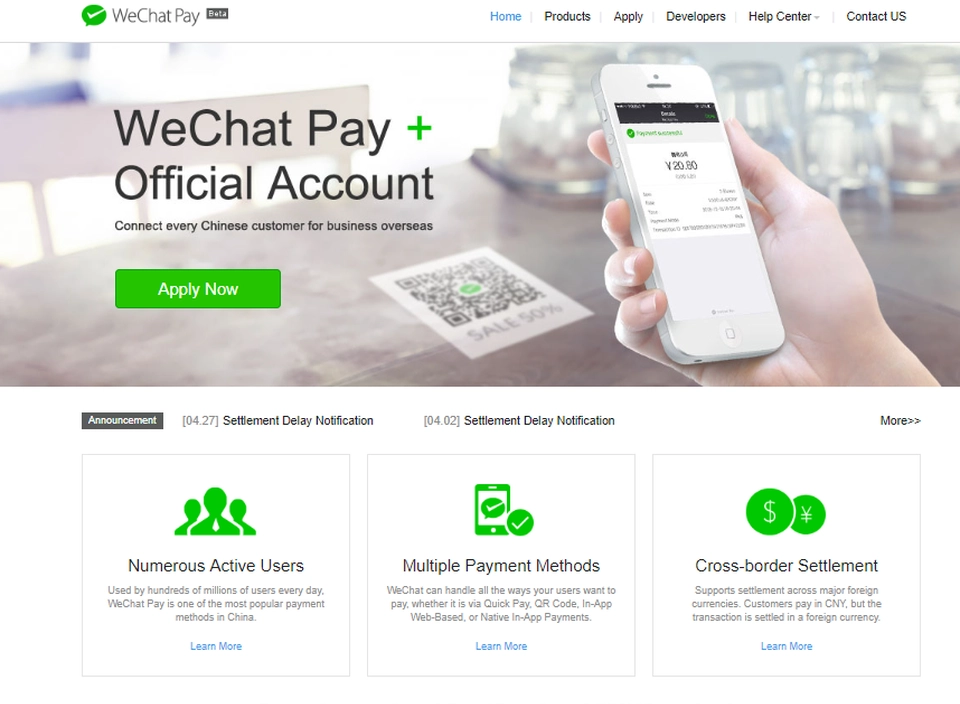WeChat Pay
Connect every Chinese customer for business overseas
Overview WeChat Pay ?
WeChat Payment - China's leading third-party payment platform | WeChat payment provides a safe and efficient payment method.
Latest news WeChat Pay
-
Consumer Choice Pushes the Issue for Alternative Payment Methods
This holiday season, consumers want it their way. And when it comes to the payments that fuel seasonal commerce, their way is fast, secure and …
6 months, 3 weeks ago
-
Thunes Launches QR Code Solution for Foreign Travellers Making Payments in China
Thunes, the cross-border payment infrastructure provider, has launched a new QR Code Payments solution, enabling users of foreign mobile wallets and financial apps to make …
8 months, 1 week ago
-
Fintech in China: Leading the Charge for Economic Progress in 2024
In 2024, China’s fintech landscape is playing an increasingly central role in its economic development, as the country continues to solidify its position as the …
9 months, 2 weeks ago



